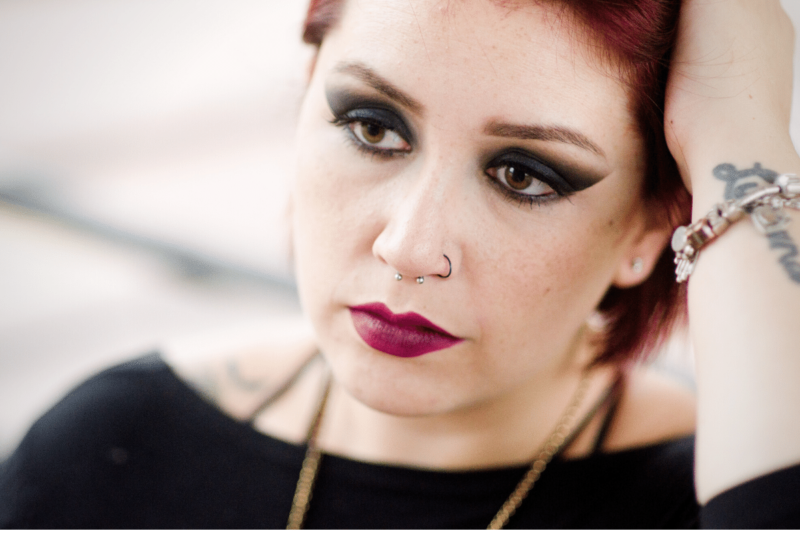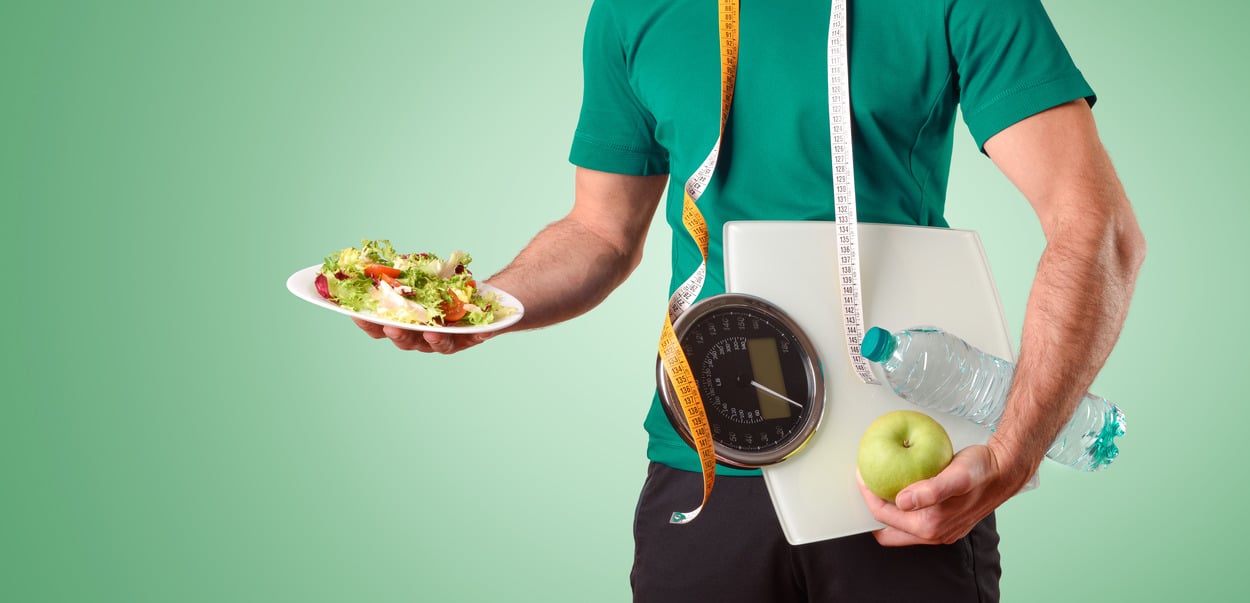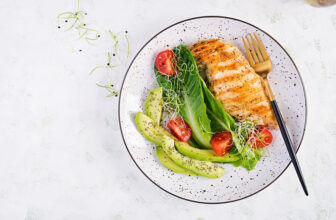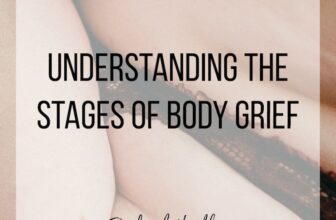
[ad_1]

When you’re practicing Intuitive Eating and moving towards a more liberatory mindset that focuses on physical and mental well-being rather than on weight, you are part of a growing movement that has seen the lies and the harm perpetuated by diet culture. But you still ARE living in diet culture. You are still swimming in those waters, as we all are.
At times, this can be maddening, because once you see diet culture for what it is, you can’t unsee it. If you are noticing benefits from your new mind shifts, it can be tempting to try to “fix” friends or family who are still stuck in a cycle of yo-yo dieting,
Alternately, you may still feel the pull of diet culture. You might feel this all the time, most of the time, or maybe only at those times of the year when you traditionally started new diets, such as the new year and the beginning of summer. Perhaps looking at a full-body photo of yourself or catching your reflection in a mirror or store window makes you think, “Maybe I should try just one more diet then go back to intuitive eating.”
Yes, this can feel challenging. When you’re charting your own path away from diet culture, you’re swimming against the tide, like it or not. To help you stay on your path, it’s important to:
- Deal with lingering diet mindset
- See diet culture where it hides
- Avoid perpetuating diet culture
One way to do this is to be mindful of your thoughts and words. Are they still reflecting diet culture? Here are eight examples of how your words — whether directed towards yourself or others — can perpetuate diet mindset, and some ideas for what to do or say instead.

1. “I feel fat.”
Fat is not a feeling. It’s a description. Some people even describe themselves as fat in an empowering way. When you say, “I feel fat,” when you really mean you feel bad, or gross, you’re saying that being fat is inherently bad or gross. And that’s not very kind either to yourself or to others.
If what you really mean is “I feel like I’ve gained weight,” consider that diet culture wants you to feel as bad as possible about it. So don’t let it. Also keep in mind that feeling like you gained weight doesn’t necessarily mean you have. What’s really going on may not even have anything to do with your body — it’s not uncommon to “scapegoat” the body when feeling a low mood or experiencing disappointment about a breakup, a bad date, or not nailing that job or promotion.
Remember that if you’re practicing intuitive eating — honoring your hunger, feeling your fullness, coping with your emotions with kindness and making peace with food — your body will settle in a weight range that you can maintain without heroic effort.
And if that range is higher than what you always envisioned—and you’re finding that hard to swallow—that means you still have some work to do around body respect and being at home IN your body. This is totally common.
Instead of saying “I feel fat,” try saying, “I don’t feel good about my body today.” Then show yourself some compassion and get on with the rest of your day.

2. Telling someone, “You lost weight, you look great!”
Diet culture tells us that losing weight is a good thing, no matter how it’s done. But that’s not true. If someone in your life has lost weight, it could be due to an illness, an eating disorder, or depression. There’s no way of knowing what’s going on below the surface or behind closed doors.
Instead, if someone looks happy, has a great outfit on, or is spreading positive vibes, tell them THAT. Or simply say, “Hey, it’s great to see you!”
If it’s a close friend or family member who you know has chosen to intentionally lose weight, it’s still a good idea not to comment directly on their weight loss. If you do, what happens when they start to regain weight, as most dieters do? Stick with genuine comments like those above that you would say regardless of what they weigh or which direction their weight is going in.
The bottom line is that it’s never a good idea to comment on someone else’s body without their permission.
3. Calling food “naughty” or “bad” or “sinful” or “guilt-free.”
Food is just food. It can fuel us, comfort us or bring us joy. But it does not have an inherent morality. There’s no such thing as “good” and “bad” foods, or foods that should automatically make you feel bad because you ate them. If a food makes you feel physically unwell, then that’s just not a food that’s right for you.
Deciding certain foods are good and certain foods are bad is a surefire way to stress yourself out and develop a negative association with eating. Plus, your “guilty” food could be someone else’s favorite treat that totally fits into their overall eating pattern, so why bring them down?
Instead, decide what to eat based on how hungry you are, how long you need your meal to sustain you, and what will satisfy your senses and leave you feeling physically good when the meal is done. That’s it.

4. Saying “Ugh, I’m so fat” after eating a big meal.
If you say this, all you’re doing is shaming yourself and anyone around you for eating. You’re also associating being fat with being overindulgent, with overeating, and with having a lack of self-control. That’s simply not fair or kind…and probably not true.
If you’re full, just say so. There’s nothing wrong with feeling full. If you ate past the point of comfortable fullness and now feel unwell, note that fact to yourself and, using self-compassion, explore what lead to this turn of events.
- Were you too hungry when you started the meal?
- Did you eat mindlessly?
- Were you using food to cope?
Take this information and learn from it. There’s no need to announce your inner dialog to others.
5. Choosing clothes based on whether they make you look thin
Diet culture tells us our number one goal is to look as thin as possible, but it doesn’t have to be that way. Clothing doesn’t even have to be “flattering.” You just have to feel good in it.
Choose clothing that makes you smile when you open your closet in the morning. This may mean exploring what fabrics, colors and cuts you naturally gravitate to. If you don’t feel good in “hard pants,” wear pants with stretch (and a stretchy waistband), skirts, or dresses.
And if you have clothes that don’t fit, don’t keep them in your closet. Either give them away, box them up for storage, or keep them in a less-accessible part of your closet. The accessible part of your closet should be dedicated to clothes that fit and feel good.

6. “I’m having a cheat day.”
You don’t have to justify what (or how much) you’re eating to yourself or anyone around you. Diet culture teaches us we have to have an excuse to eat a certain thing, but you don’t. You are under zero obligation to explain your food choices. And labeling a food as something you would only eat on a cheat day is a thinly veiled way of saying that food is “bad” (see #3).
Besides…who are you cheating on, exactly?
When you’re an intuitive eater, there’s no such thing as a cheat day, because you have permission to eat all foods, so formerly “forbidden” foods no longer pull you toward them with their siren’s song. So if you find yourself thinking of a day of eating as being a cheat day, that’s a red flag that maybe you haven’t fully given yourself permission to eat.
We all have days of eating that have a higher proportion of “play foods,” but again, check in with hunger and fullness, ask yourself what foods would really satisfy you, and ask yourself periodically if the food is still tasting goods. Use internal cues to guide your eating, not external rules about what you “should” or “shouldn’t” eat.

7. “You’re not fat, you’re beautiful.”
According to diet culture, the worst possible thing you can be is fat. To be fat means you can’t be beautiful, or happy, or successful. But that is so far from the truth.
You can be fat and beautiful, period. You are also worthy if you aren’t “conventionally” beautiful. Beauty comes in many forms, not all of them visual. Focusing on appearance reinforces the idea that how we look is our most important attribute.
Keep in mind that “fat” doesn’t have to be treated as an insult. Many people are fat and use the word without a problem.
- If someone is thin and calls themselves “fat,” maybe it’s worth a talk to understand why they feel that way. Did something happen that has caused them to feel bad about (or in) their bodies? Is body dissatisfaction a constant presence in their lives?
- If someone is fat and calls themselves “fat,” it’s also worth understanding why they choose their word. If their tone of voice is neutral, you might ask them if that’s how they prefer to describe their bodies. If their tone is negative, ask them more about what’s going on?
- (Both of the above assume you’re close enough to the person to have these kinds of personal conversations.)
Regardless, when someone you know says, “I’m fat” and you sense they mean this in a negative way, say something like, “I’m sorry you’re feeling dissatisfied with your body today, because I know that hurts. You’re amazing and wonderful, and I’m lucky to know you” Or, if someone is simply using fat as a neutral descriptor, say nothing. Let them describe themselves how they want to.
8. “My thighs/stomach/arms are too big”
First, are they really? Second, no one else needs to hear it. Think about how your words impact anyone else in the room who’s larger than you or younger than you…children and teens can be impressionable.
Instead, say nothing, while noting your thoughts and reminding yourself that we all have days where it’s harder to respect and appreciate our bodies. Don’t let your thoughts hook you. Try shifting your thoughts to gratitude for all the things your arms and legs do for you. And who says stomachs are supposed to be flat? This is an even more important question if you’ve birthed an actual human.
Carrie Dennett, MPH, RDN, is a Pacific Northwest-based registered dietitian nutritionist, freelance writer, intuitive eating counselor, author, and speaker. Her superpowers include busting nutrition myths and empowering women to feel better in their bodies and make food choices that support pleasure, nutrition and health. This post is for informational purposes only and does not constitute individualized nutrition or medical advice.
Seeking 1-on-1 nutrition counseling? Carrie offers a 6-month Food & Body program (intuitive eating, body image, mindfulness, self-compassion) and a 4-month IBS management program (low-FODMAP diet coaching with an emphasis on increasing food freedom). Visit the links to learn more and book a free intro call to see if the program is a good fit, and if we’re a good fit!
[ad_2]







